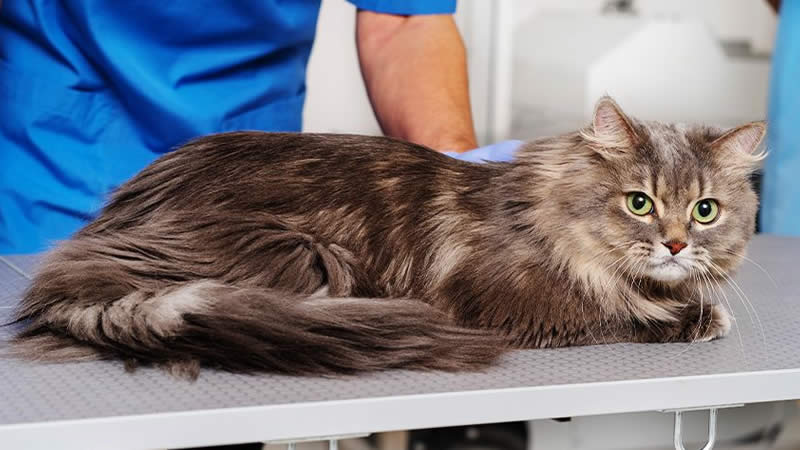Long-haired breeds of cats, such as the American Bobtail, LaPerm, Birman, Japanese Bobtail, Manx, and Maine Coon, to name just a few, are some of the most beautiful and captivating breeds of cats of them all.
However, naturally, with their fur being so long and luscious, just like a human with long hair, extra care must be taken to ensure it stays in excellent condition and that no health issues develop from poor grooming and maintenance.
So, whether you already own such a long-haired breed or are considering adopting one in the near future, you have certainly clicked upon the right article. Continue reading to learn how to take proper care of a long-haired cat.
Basic Needs of any Pet Cat
Even though owning a long-haired breed of cat comes with its own additional challenges and requirements to ensure your beloved animal’s health and happiness, it is important to also be aware, especially as a first-time cat owner, of the basic needs as well.
To keep your cat happy and healthy, follow these basic tips:
- Ensure your cat has access to fresh water constantly
- Have more than one litter box and clean them daily
- Train your cat to use their scratching post
- Emotionally engage and connect with your cat
- Ensure proper nutrition
- Always use a crate or carrier when traveling in the car
In addition, the best possible thing you can do for your cat is to register them with an established veterinary practice like saltwateranimalhospital.com, which will be more than happy to answer any questions or queries regarding the care of your cat.
Grooming
If you notice that clumps of fur are starting to fall out of your cat and you are finding fur balls around the house, then this is cause for concern and may result from poor grooming. You must make sure you brush your cat thoroughly and regularly and gently rid the fur of any mats or tangles.
The main causes of a decline in the quality, shine, and strength of your cat’s coat are numerous, but one of the main reasons could be that they have an infestation of parasites, such as fleas or mice. If you suspect this is the case, you must take your cat to your registered veterinary practice as soon as possible.
Another reason why your cat’s fur could be matting or, indeed, falling out in clumps could be due to stress, as just like as humans, changes in lifestyles or living accommodations can cause their hair to fall out.
Nutrition
All cats, as indeed all domesticated animals, need to be provided with the proper levels of vitamins, minerals, and nutrients to ensure their organs function correctly.
However, with long-haired breeds of cats, vitamins become even more important, and it can be helpful, ideally on your veterinary surgeon’s advice, to supplement your cat’s diet with vitamins. Long-haired cats are extra work, but their beauty becomes your responsibility if you bring one into your home.



